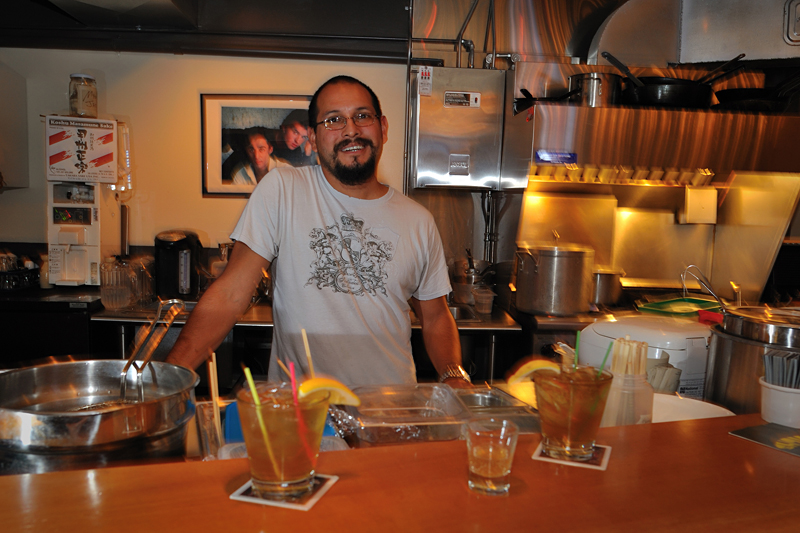When Mayor Greg Nickels sent Tim Ceis to Olympia to push for a $4.2 billion deep-bore tunnel to replace the Alaskan Way Viaduct, one city council member, Jan Drago, accompanied the deputy mayor. Drago has also been Nickels’ biggest advocate of the project to dramatically revamp Mercer Street, as well as of the streetcar system, starting with the oft-mocked South Lake Union line.
Drago and the mayor haven’t just been aligned ideologically; they’ve both drawn heavily over the years from the same donors: Vulcan, the Washington Association of Realtors, local unions, and members of the Downtown Seattle Association and the Greater Seattle Chamber of Commerce, both of which were pushing hard for the tunnel plan that the governor signed into law on May 12.
On March 1 the 68-year-old Drago wrote a letter to constituents announcing that she would leave her seat at the end of this year because she “decided that it is a time for a change—change for the City Council and change for me.” But in the fairly likely event she runs for mayor, Drago will need to convince voters that replacing Nickels with a council member who has been one of his closest allies actually constitutes change.
“That’s the irony, isn’t it?” says Drago’s council colleague, Nick Licata. “I think that’s going to be her biggest hurdle as a candidate. People will want to know what’s different.”
Drago has voted against the rest of the council in 8–1 decisions five times since Nickels took office, according to city clerk records. Four of those votes pitted the mayor against the council—and every time, Drago backed Nickels. In 2002, Drago voted against a plan to place serious restrictions on development around the University of Washington, a plan opposed by both Nickels and UW officials. (The final version of the plan required approval from both city and university regents. The university, mayor, and Drago ultimately got their way, as most of the restrictions they opposed were killed in the final agreement in early 2003.)
Drago again sided with the mayor in a 2005 fight with the council over where to locate services targeted to the city’s homeless population. Nickels wanted to construct a facility near the International District, while the council voted almost unanimously to expand the Downtown Emergency Services Center. Drago was the only council member to side with Nickels.
In 2007, after the mayor created his own panel to review new police-accountability standards, the council decided to create a separate one that would also review proposed standards, but report to the council rather than the mayor. Again, Drago was the only person to vote against it.
But Drago insists she’s no Nickels’ Mini-Me, claiming that “I’ve always said I’m the mayor’s best friend or his worst enemy.”
This isn’t the first time Drago has considered a run for mayor. She poll-tested herself against Paul Schell in 2001, the year Nickels ran his own successful campaign against an incumbent with low approval numbers (suffered largely as a result of the WTO crisis). And Drago’s made it clear she doesn’t intend to spend her post-council time playing shuffleboard in Arizona, telling Crosscut’s David Brewster last month that she never intended to retire from public life. She also threw her hat into the ring—unsuccessfully, it would turn out—to become president of the Greater Seattle Chamber of Commerce, and was rumored to be considering a run for the Port Commission.
But these days, “Mayor Drago” is forefront in the veteran council member’s mind. When on May 7 the Alki Foundation, the fundraising arm of the Greater Seattle Chamber of Commerce, brought the declared mayoral candidates in for a forum, Drago quickly asked the first question: where the candidates stood on changing the city’s industrial-zoning ordinance.
In 2006, Nickels proposed changing the rules to prevent the opening of additional big-box retail stores and the like in traditionally industrial neighborhoods like SoDo. Nickels’ proposal was heralded by the Manufacturing Industrial Council of Seattle as a way to protect industrial businesses in the city limits. When stores like Home Depot come in or residential development is allowed, property prices skyrocket, meaning smaller manufacturing operations see their tax bills jump and start thinking about leaving, says Dave Gering, the Industrial Council’s executive director. It was a vicious fight, he explains, as some property owners want to be able to sell to developers. “[Drago] would certainly pull the support of people who really want to redevelop the north Duwamish Industrial area,” Gering says.
But even there she’ll have some work to do, says Mike Peringer, president of the SoDo Business Association, which opposed Nickels’ rules. “As far as I am concerned, [industrial zoning] is an issue, but, you know, she’s running for the whole city,” he says, adding that it will take more than one vote against a regulation he doesn’t like to convince him to vote for Drago.
Drago also points to her vote opposing Nickels’ plan to annex the northern half of White Center under an agreement with Burien. The rest of the council, with the exception of Jean Godden, also voted the plan down, saying that without a better tax credit from the state, it would be too expensive to bring the unincorporated area into the city fold. Finally, Drago is touting her vote against the proposed grocery-bag tax as another instance when she’s bucked the mayor. She isn’t pitching the vote as a sign she’s idealistically at odds with Nickels, but rather says it is “indicative of a different kind of style.”
“I believe in a carrot first before a stick,” she says, adding that she would like to see the city give people incentives to switch to reusable bags.
Former city council member Peter Steinbrueck says style is likely what a race between Drago and Nickels will come down to. He notes that while she often agrees with the mayor on policy, Drago’s approach is very different. Steinbrueck remembers working with Licata—more than a decade ago, before he joined the council—to oppose opening Pine Street to vehicular traffic. Drago wanted to open it, he says, but met several times with him and Licata to hear their concerns. The street ultimately was reopened to cars, but at least it felt as though they’d been listened to, Steinbrueck says.
“Nickels is anything but a consensus builder. Jan’s style is consensus-building,” says Steinbrueck, who adds that he hasn’t decided if he’d support Drago should she run.
But that still leaves the question of where, exactly, Drago can pull financial support and votes. Drago says one reason she hasn’t thrown her hat into the ring is that she’s still evaluating the financial landscape. So far the field challenging Nickels has been very short on funds, with the exception of self-financed T-Mobile executive Joe Mallahan.
Several of Drago’s biggest supporters of her 2005 re-election campaign also gave money to Nickels four years ago. At the Alki Foundation breakfast, Drago pulled people like Boeing lobbyist Rich White into a coat closet to speak in whispered tones. But many donors, including Vulcan, a long list of property developers, and people with big commercial interests in the city like Costco CEO Jeff Brotman, have already given to Nickels for this year’s run, so Drago would have to convince them to support both campaigns.
One political operative, who agreed to be quoted only anonymously, says the similarities between the two might actually be the key to her success. He points to recent poll numbers released by Drago showing her well ahead of the mayor in a head-to-head race. Neither wins a majority, but Drago receives 45 percent of the vote to Nickels’ 24 percent.
The poll is disputed by the Nickels campaign, which argued that Drago poisoned the well against Nickels by pointing out things like the fact that if elected, Drago would be the first female mayor in more than 80 years. But the anonymous source says a more important aspect of the poll isn’t what it says about Drago, but that the mayor has “numbers worse than Paul Schell.”
The source says Drago can make a pitch to potential donors by using Nickels’ sinking numbers to argue that someone unfriendly to moneyed interests has a real shot at unseating the mayor. If environmentalist Mike McGinn, for example, is elected mayor, companies like Vulcan that have been supported by both Drago and Nickels in the past could find themselves facing a very unfriendly administration, one which could potentially derail big projects like the Mercer Street redevelopment. In essence, Drago can persuade potential supporters—especially those she shares with the mayor—that because Nickels is on shaky ground, she’s a safer bet for keeping their agenda moving through City Hall.
Drago hasn’t made up her mind whether to run, but says she will soon. She’s coaxed consultant Blair Butterworth away from James Donaldson’s campaign, and formed the requisite exploratory committee. And she’s certainly talking like a candidate. “Clearly my polling shows that I’m a viable candidate, and the mayor’s numbers are spiraling down, getting weaker instead of stronger,” she says.
What remains to be seen is if she can turn those poll numbers into the kind of cash she would need to oust Nickels.







